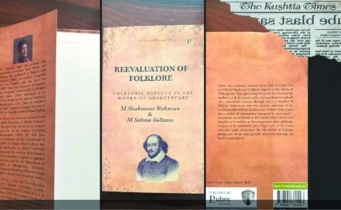
In 1972, MN Larma led a delegation and placed several demands including autonomy, own legislature and imposition of a ban on the entry of non-tribal people to Bangabandhu Sheikh Mujibur Rahman. As these demands were not accepted, MN Larma resorted to insurgency movement. After the tragic death of Bangabandhu Sheikh Mujibur Rahman, MN Larma went underground and PCJSS resorted to full scale insurgency operation. It further alienated the people of CHT. Many of them went for forced migration to India and India provided limited humanitarian support to these refugees. Simultaneously, they provided sanctuary to PCJSS and its armed group. The government brought 400,000 poor Bengali settlers from different plain districts between 1979 and 1984. Bengali number rose from 26% in 1974 to 41% in 1981 (UNESCO 2011,4). The armed insurgency of the tribal people and their dialogues with government continued up to 1997. During these years, alleged widespread and systematic violations of human rights of the tribal and Bengali people took place. After successive and prolonged negotiations, Accord signed in 1997 and it has four (04) parts, General, Chittagong Hill Tracts Local Government Council/Hill District Council, Chittagong Hill Tracts Regional Council and Rehabilitation, General Amnesty and Other Matters.
The Accord created environment for ending social disorder. The role and influence of kingship, Buddhist monks, Headman, Karbaris and lifestyle of people were exposed to scrutiny. The pattern of livelihood started changing in view of lawlessness and lack of security during 1972-1997.
The internal migration, cultural and social indicators slowly have changed the lifestyle and mindset of the people of both CHT and other parts of Bangladesh. The root causes of deprivation and economic disparity have reduced significantly. The cultural identification and preservation requirement have well spelled out within
Accord provisions. Economic development has started resulting benefits to the people. The roles of Armed Forces (AF) became restricted. Accord established number of institutions like three locally elected District Councils, a Regional Council, a Ministry of CHT Affairs and a Land Commission with immediate decision-making power. Accord is an official, document signed by both representatives. It's importance was recognized by the international community. UN awarded UNESCO Peace Prize to the then Prime Minister Sheikh Hasina. However, Accord was apparently unsuccessful in solving issues like human rights, tribal and Bengali land rights and environmental governance of CHT. A group of tribal leaders opposed and organized a new political Platform UPDF (United Peoples Democratic Front). Most of the left leaning parties supported Accord. But, BNP and few other political parties consider this Accord as unconstitutional and compromising of the core national interests including national security. The constitutional safeguards have not protected Accord. But, all subsequent governments have honoured the Accord provisions. It is a reality that understanding of development did not consider the local's economic and cultural aspirations due to greedy and callous attitude of the tribal leadership, non-government agencies and mindset of government organs.
Both the signatories are expressing dissatisfaction about the complete outcome of Accord. The social cohesion expected as a result of Accord did not take place. The resultant effects on the tribal and the Bengali community are multi-dimensional. The attitude of the tribal to retain CHT Regulation 1900 is contradictory to existing constitution. The rule of majority and non-inclusiveness of the minority has emerged in CHT. The new idea of "Adibasi or Indigenous people" created confusion and frustration among the people, state organs and international community. Absence of comprehensive modalities of implementation of Accord have again engaged parties for blame game and seeking international and regional support. The simple tribal people habituated with forest-based livelihood have lost the direction of living side by side with the Bengalis. Therefore, there are grouping and counter-grouping regarding implementations of Accord. They have engaged in intra-party feud and destabilized the local law and order situation and economic development. The development efforts did not benefit adequately to all the tribal. On the other hand, Bengali settlers are also perplexed like "a caged animal without freedom of cultivation and habitation". It created a sense of deprivation being a citizen of Bangladesh. The government's efforts to organize their demand under nationwide major political party platform could not subdue CHT based politics. It rather created a new brand of financially privileged groups in addition to the existing elites and local government representatives due to enormous development works. The traditional tribal kingship, Chittagong Hills Development Board and newly introduced higher local government structures created a hotchpotch about areas of jurisdiction in CHT. The recent government decision to deploy Armed Police Battalions and strong position of the government to maintain law and order may again give death knell to Accord, social cohesion and good governance in CHT





































